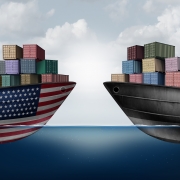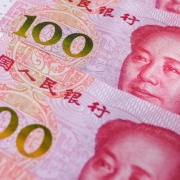America’s Governing Elite Wants To Govern Just Like China’s.
China envy runs strong among America’s progressive elite. The Communist Party of China’s hold on power and centralized decision-making has long appealed to progressives infuriated with their inability to mandate solutions to global warming (and other progressive priorities).
Tom Friedman, an established bellwether of elite opinion, has been voicing this exasperation for more than a decade. Last weekend he reduced the genocide in Xinjiang to “bad stuff with the Uighurs,” of less concern than Chinese excellence in high-speed rail.
Far too few Americans grasp the implications of such a view taking root among their own elite. Though more and more Americans are awakening to the challenges inherent in China’s growing economic, technological, and military capabilities, few understand the threat that China’s governing philosophy and structures pose to the US.
As David Goldman has explained, though the CPC is nominally Communist, China is what it has been for millennia: an empire run by oligarchic mandarins. The appeal to an American elite that sees itself as a worthy meritocracy enamored of governance by bureaucratic experts is obvious.
Americans need to understand that beyond mere appeal and envy, there is a growing convergence of interests between China’s entrenched communist oligarchs and America’s emerging progressive oligarchs.
Today’s China, like all imperial powers, seeks to exploit the resources of anyone and anything outside its central oligarchy to enhance the prosperity, prestige, and power of that center. As a result, the CPC doesn’t much care how foreigners organize their internal affairs as long as they remain subject to two imperial edicts: Don’t interfere with China’s exploitation of your resources, and don’t challenge the CPC’s virtue and wisdom.
Those rules frame Chinese influence in the US. As Lee Smith recently outlined, China has employed another standard imperial trick to further that influence. It has invested heavily to create a formidable oligarchy of American enforcers.
Though penetration is far deeper among Democrats than Republicans, this oligarchy is bipartisan. It also extends to leading American names in industry, banking, entertainment and sports to create a tight alliance binding America’s progressives to China.
Those enforcers understand what they’re paid to do. Unlike in earlier eras, when food and gold were the focus of imperial exploitation, the most valuable resource today is information.
China seeks to exploit American technical education, research, finance, and intellectual property. China’s payment for those public resources flows almost entirely to elite progressives and their institutions. For Americans outside the elite, China offers low-cost consumer goods and technology products.
Because the exploitation of information resources and the provision of inexpensive goods both reduce US employment opportunities, America’s elite must stifle resentment that unemployed Americans express toward China.
Potential critiques of the CPC run far beyond economic grievances, however. Numerous alleged actions are deeply offensive to traditional American sensibilities: destroying Tibetan culture, crushing freedom in Hong Kong, running genocidal concentration camps for Uighurs, brutalizing Falun Gong practitioners, suppressing Christianity, and using political prisoners for organ harvesting, to name but a few.
The American oligarchy is paid to play down these atrocities as lamentable, but of minimal consequence – as Friedman’s recent comments demonstrate quite clearly.
This imperative has never been more important than in discussions about the origins of the coronavirus that causes Covid-19. Unlike China’s domestic human-rights abuses, this pandemic has had a clear, negative impact on the lives of Americans. Hence the absolute need to insist that the pandemic’s origins remain unknown, and to label as racist any reference to a “Chinese virus.”
Beyond simply serving China’s imperial needs, the US oligarchy is working to build an America that looks more like China. The contours of their system are already clear: an enlightened elite broadcasts official progressive facts, beliefs, and values that none may question.
Individual rights and liberties are sacrificed in the name of the common good. Those who object are deemed unfit for polite society, then shunned or removed. Citizens inform on one another to curry favor and prestige.
Such a transformation of the US along Chinese lines is hardly without precedent. Throughout history, the structures and ethos of dominant powers have flowed throughout their spheres of influence. Since World War II, American norms like representative government, human rights, and the rule of law have held sway around the globe – at least in theory, if not always in practice.
Should the American hegemon give way to China, the governing model of a ruthless, meritocratic bureaucracy charged with defining the common good will play a comparable role.
When progressives committed to transforming America express their China envy, the pieces all come together. What they’re after is an America transformed to conform with the China model. Americans willing to pay attention to current events understand that this transformation is already under way. Those who prefer to restore a more traditional understanding of America must start by raising awareness of the threat that it poses.





